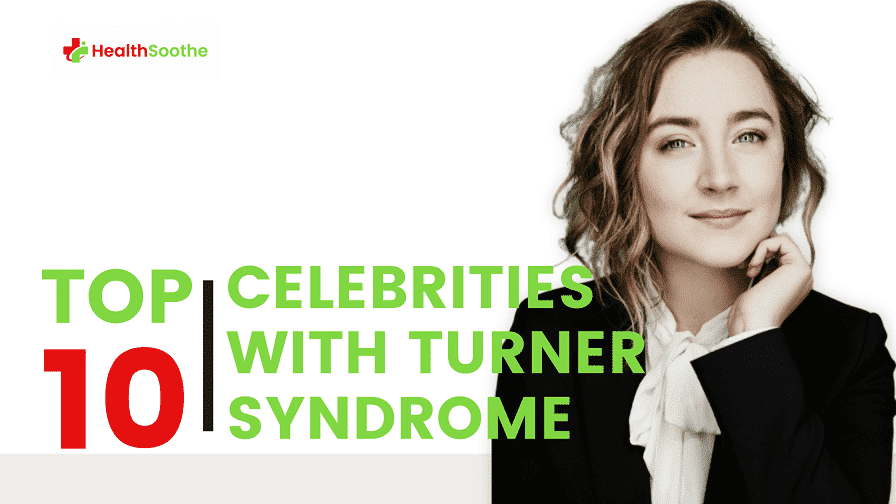Turner syndrome is most known as the ailment that caused Ringo Starr's finger to be shorter than the other Beatles', but it is much more than that. It is a chromosomal condition in which females have only one X chromosome rather than two.
This article is available in French
These genes impact their bodies in different ways, but because of their openness about the issue throughout their lives and professions, we will learn about several famous people with Turner Syndrome (TS).
Celebrities with Turner syndrome may be difficult to identify to the untrained eye. They appear to be regular people and have nothing wrong with them, but as you'll soon discover, this is far from the case. This article will introduce you to the top ten celebrities with Turner syndrome.
What is Turner Syndrome
Turner syndrome is caused by the absence or partial absence of one of the X chromosomes (sex chromosomes), which affects only females.
Turner syndrome can cause a variety of medical and physical issues, including low height, ovarian failure, and cardiac anomalies.
Turner syndrome can be diagnosed before birth (early in pregnancy), throughout infancy, or in adolescence.
In girls with mild indications and symptoms, the diagnosis of Turner syndrome is sometimes delayed until they are in their adolescence or young adult years.
Turner syndrome affects both girls and women, and they require ongoing medical care from a variety of experts.
With frequent care and effective treatment, most girls and women will live stable, independent lives.
Related Celebrities Stories:
Celebrities with Turner Syndrome
Yes, there are many celebrities, noteworthy personalities, and renowned people with Turner syndrome. Continue reading to learn more about some of them.
1. Dr Catherine Ward Melver

Dr Catherine Ward Melvern is a medical geneticist and one of several celebrities that suffer from Turner syndrome.
She has been working in the field of genetics for more than 16 years. She was diagnosed with this disease when she was seven years old, despite being barely four feet and eight inches tall.
She is licensed by the OH State Medical License, the American Board of Pediatrics, and the American Board of Medical Genetics.
Because of her disability, she was unable to become pregnant, but she embraced parenthood by adopting a 4-year-old daughter with the same ailment from China.
However, Zoe's prognosis looks better now that growth hormone therapy and other therapeutic alternatives are more widely available.
2. American Gymnast Missy Marlowe
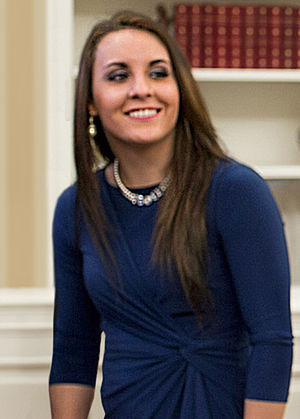
Missy Marlowe is another celebrity with Turner syndrome who has accomplished a lot in her life.
She participated in artistic gymnastics and was a member of the United States squad that competed in the Pan American Games in Indianapolis.
She was chosen for the bi-champion team, won several honours, and even defeated Sabrina Mar.
One of her most remarkable accomplishments was becoming World Champion Gymnast. She is currently retired and works as a spokeswoman for the Turner Syndrome Society.
3. Hollywood Actress Linda Hunt

If you’ve watched the popular CBS series ‘NCIS: Los Angeles,’ you’re certainly familiar with Lydia Susanna Hunter.
However, you may not be aware that this American TV, film, and stage actress is one of the celebrities that suffer from Turner syndrome.
She began her career as a singer, but she made her Hollywood breakthrough in the film version of Popeye.
She has received 13 honours, including the 2012 Teen Choice Award and the 1984 Academy Award for Best Supporting Actress.
4. Scottish Actress Janette Cranky

Janette Krankie's Turner syndrome prevented her from growing taller than 4 feet and 5.5 inches, but it did not prevent her from being one of the most popular Turner syndrome celebrities.
She was born in Scotland in 1947 and is most known for her roles in The Krankies Klub (1982), The Krankies Elektronik Komik (1985), and TV's Funniest Music Moments (2008).
In 1969, she married. She is currently semi-retired and was hospitalized following an on-stage mishap in 2004.
Despite this, she and her husband Ian Tough appeared in a Comic Relief charity film in 2007.
5. American Actress and Singer, Nicole Scherzinger

This American singer and actress are one of the turner syndrome celebrities that have built a name for themselves in Hollywood. Nicole Prescovia Elikolani Valiente was born on June 29, 1978, to Donna (née Lau) and Joseph Valiente. Her father is partly Puerto Rican, while her mother is of German, Irish, French, Dutch, and Hawaiian origin.
She is most recognized for her role as a member of The Pussycat Dolls, with Ashley Roberts, Jessica Sutta, Melody Thornton, and Kimberly Wyatt.
During their six years together, from 2005 to 2010, the group achieved international success.
6. Natalie Gulbis

Natalie Gulbis is a professional golfer from the United States who was diagnosed with Turner syndrome as a child.
Dr Steven and Lisa Gulbis gave birth to her on November 26, 1983. She is a professional golfer and model who has reached the top nine in the Women's World Golf Rankings.
7. Actress Jessica Alba
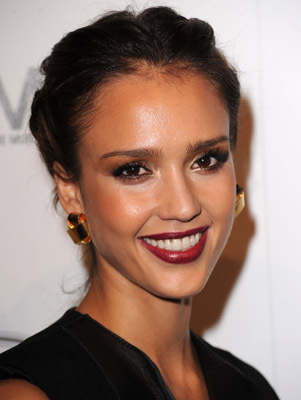
Turner syndrome has been identified in this actress. Jessica Marie Alba was born on April 28, 1981, in Los Angeles, California, to Catherine (née Jensen) and Mark David Alba. Her father is Mexican-American, while her mother is Danish.
She is an actress and model who has been named by various publications, including Maxim in 2003, as one of Hollywood's most attractive women. She began performing in television advertisements when she was 13 years old.
8. Irish Actress, Saoirse Ronan
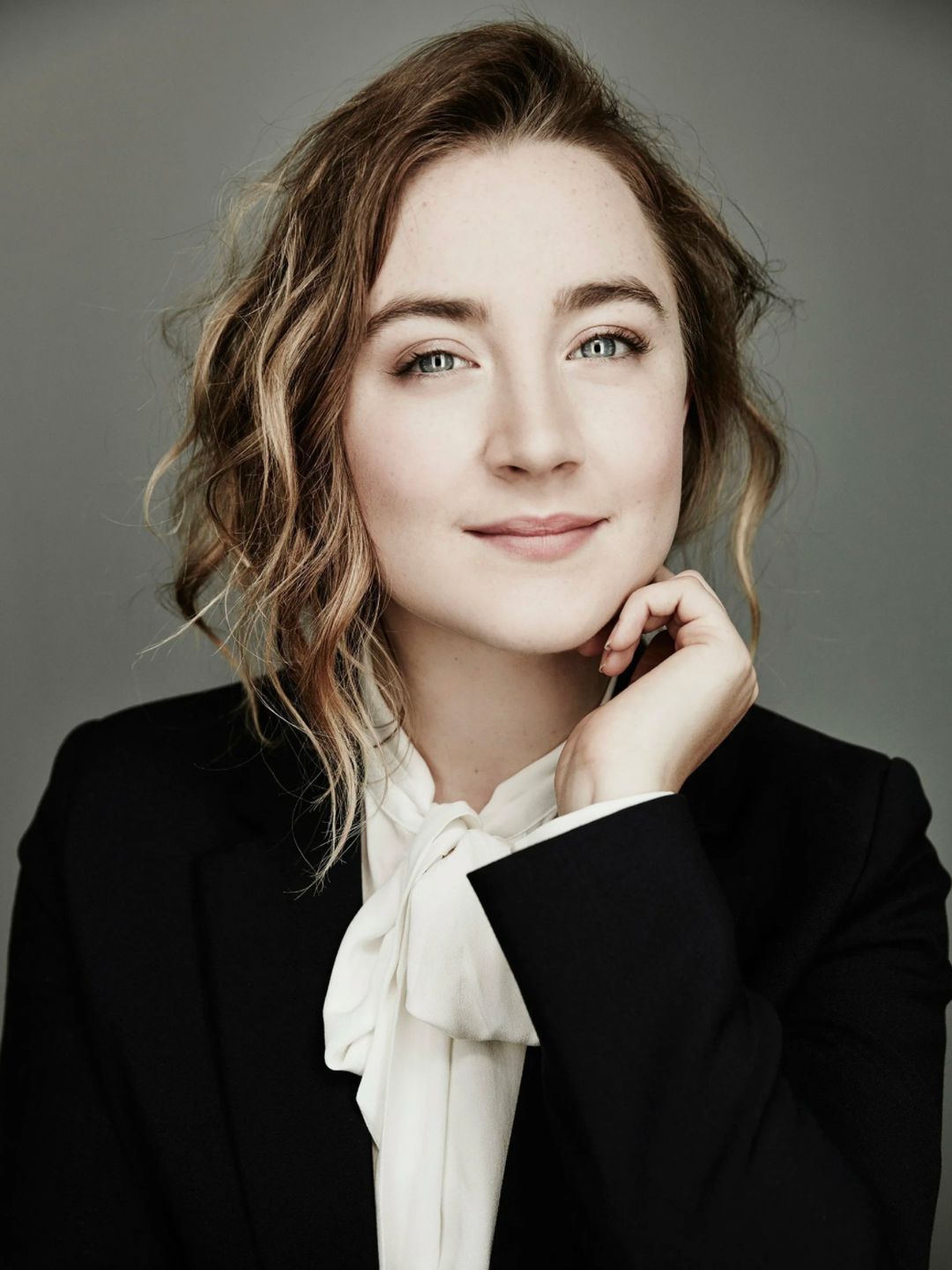
Una Ronan was born on April 12, 1994, in Dublin, Ireland, to Monica (née Brennan) and Paul Ronan.
Her father is a stage manager, while her mother manages theatrical productions.
She is most recognized for her portrayal of Briony Tallis in Atonement (2007), for which she garnered a BAFTA Award nomination, among other honours.
She has been diagnosed with Turner syndrome.
9. Actress Sarah Chalke
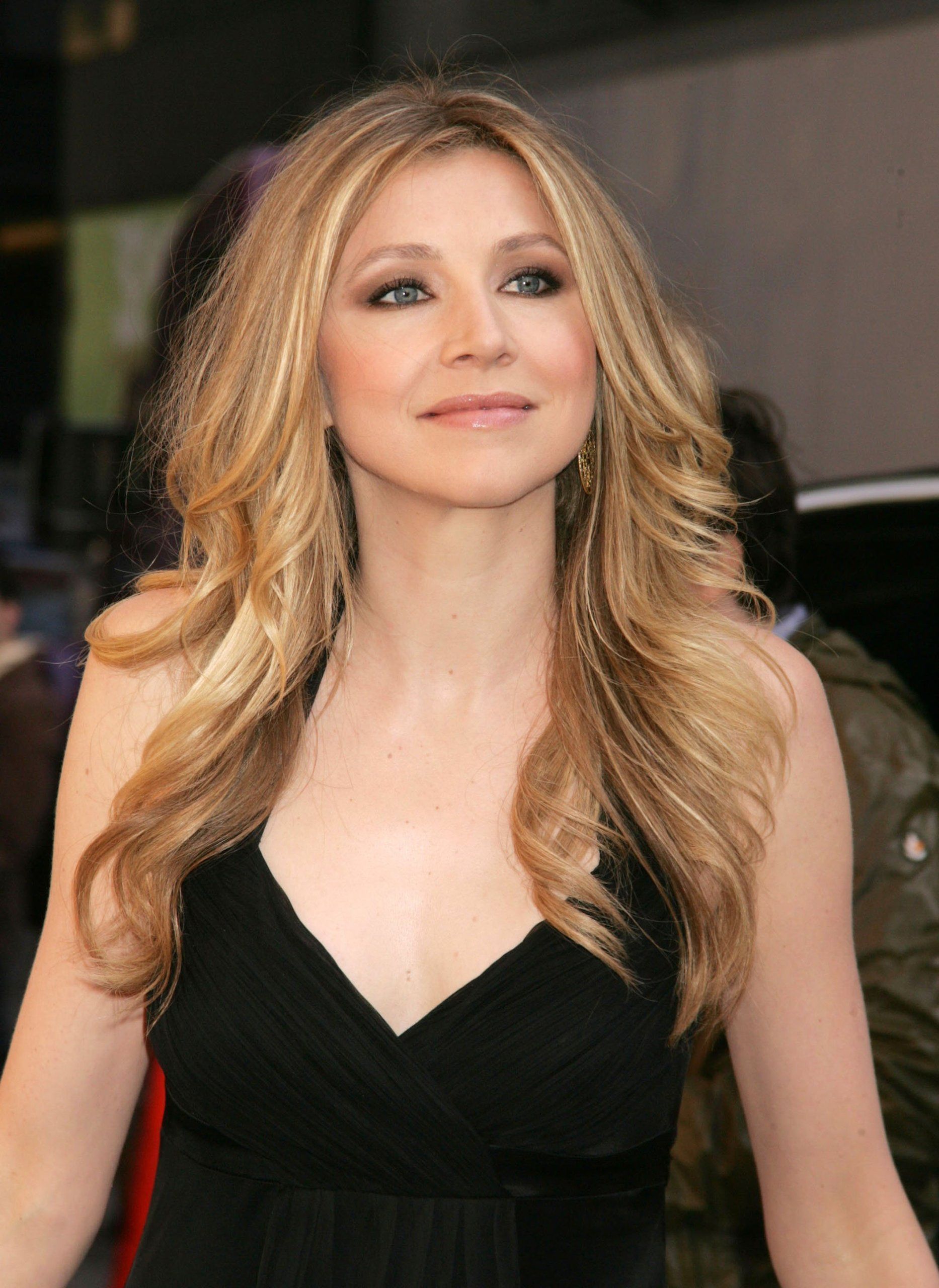
Sarah Louise Chalke is a Canadian-American actress best known for her role as Dr Elliot Reid on the NBC comedy series Scrubs, which she played from 2001 until 2010.
Dave and Linda Chalke gave birth to her on November 27, 1976. She was diagnosed with Turner syndrome as a child, which impacted her height as she matured.
10. Actress Mariska Hargitay Magdolna 1https://en.wikipedia.org/wiki/Mariska_Hargitay

Hargitay was born on January 23, 1964, in Los Angeles, California, to Hungarian immigrants Mickey Hargitay and Jayne Mansfield.
Her father is a former Mr Universe who participated in several Hollywood films, including The Longest Yard (1974) and The Swimmer (1975).
She is a well-known American actress who has played Detective Olivia Benson on NBC's long-running police drama series Law & Order: Special Victims Unit since 1999.
She was also diagnosed with Turner syndrome.
Causes of Turner Syndrome
Turner syndrome is caused by one or more of the genetic abnormalities listed below;
- Monosomy is a situation in which a malfunction in the father's sperm or the mother's egg results in the entire lack of an X chromosome. As a result, each cell in the body has just one X chromosome.
- Mosaicism is a phrase that refers to a form of mistake that can occur during the early stages of embryonic development, such as an error in cell division. As a result, certain body cells have two copies of the X chromosome. Other cells only have one copy of the X chromosome.
- X-chromosome abnormalities; It is possible to have faulty or missing X chromosomal regions. Each cell contains one complete copy and one changed copy. This error can occur in sperm or eggs, with each cell containing one complete and one mutated copy. Alternatively, a mistake in cell division during early embryonic development may result in just select cells carrying uneven or missing parts of one of the X chromosomes (above-mentioned mosaicism).
- In a small proportion of Turner syndrome instances, some cells contain one copy of the X chromosome, while others have one copy of the X chromosome plus some Y chromosomal material. Despite being physiologically female, the presence of Y chromosomal material increases their chances of acquiring gonadoblastoma, a kind of cancer
Effects of Turner Syndrome
See the list of turner syndrome complications below.
- Heart Abnormalities:
Many Turner syndrome newborns are born with heart abnormalities or even moderate structural irregularities in their hearts, increasing their risk of serious consequences.
Heart abnormalities frequently damage the aorta, a major blood artery that branches from the heart and supplies oxygen-rich blood to the body.
- Increased blood pressure (Hypertension):
Women with Turner syndrome are more likely to have increased blood pressure, which increases the risk of heart and blood vessel damage.
- Deafness may be possible:
Turner syndrome is linked to hearing loss. In certain cases, this might be ascribed to a gradual decrease in nerve activity. An increased incidence of middle ear infections can potentially cause hearing loss.
- Vision Defects:
Turner syndrome raises the chance of strabismus (poor muscular control of eye movements), nearsightedness, and other vision problems in girls.
- Renal Abnormalities (Kidney):
Turner syndrome can result in kidney malformations in young females. While these abnormalities seldom cause health problems, they can increase the risk of high blood pressure and bladder infections.
- Autoimmune diseases:
Girls and women with Turner syndrome are more likely to have an underactive thyroid due to the autoimmune disorder Hashimoto's thyroiditis (hypothyroidism).
They have a substantially higher risk of developing diabetes. In certain women, Turner syndrome might result in gluten sensitivity (celiac disease) or irritable bowel syndrome.
- Bone Related Problems:
Problems with bone development increase the likelihood of scoliosis (abnormal spinal curvature) and upper back forward rounding (kyphosis). Turner syndrome increases the likelihood of women having thin, weak bones (osteoporosis).
- Lack of Mental Sharpness (Learning Difficulties):
Turner syndrome primarily affects girls and women of ordinary intelligence. Learning difficulties, on the other hand, are more prevalent, especially when learning includes spatial ideas, arithmetic, memory, and focus.
- Mental Conditions:
Turner syndrome can make it difficult for girls and women to function effectively in social situations, and they are more prone to develop attention-deficit/hyperactivity disorder (ADHD).
- Infertility Problems:
Turner syndrome is the leading cause of infertility in the majority of women. However, only a tiny fraction of women will be able to conceive naturally, while others may require fertility medicine.
- Pregnancy Complications:
Most women with Turner syndrome are more likely to develop difficulties during pregnancy, such as high blood pressure or aortic stenosis, and should consult a cardiologist before becoming pregnant.
Treatment of Turner Syndrome
Turner syndrome is a hereditary disorder that cannot be entirely reversed. This disorder is primarily treated symptomatically.
Growth hormone therapy
Growth hormone treatment is used to treat growth retardation in children at an early stage of diagnosis. This treatment is beneficial during childhood and adolescence. The dosage of growth hormone is determined by the condition and reaction.
Estrogen Therapy
During puberty, instruction is given to sustain the development of basic and secondary sexual traits. It is frequently used with growth hormones to maintain optimal health. Estrogen should be administered until the age of menopause.
Read Also: Celebrity Bio – Dr. Lynette Nusbacher – Early Life, Career, and Transition.
Final thoughts on Turner Syndrome
Turner syndrome affects both girls and women, and they require ongoing medical care from a variety of experts. With frequent care and effective treatment, most girls and women live stable, independent lives.
There is no cure for Turner Syndrome, however, accompanying symptoms can be treated. Hormone replacement therapy is the most effective treatment for this disease.
Teen females are frequently given growth hormone to help them grow taller; they may also be given androgen in tiny doses to help them build muscle and hair.
Some patients additionally opt to take estrogen, a feminine hormone that is necessary for sexual development.
Although very few women with this illness can become pregnant without the use of any reproductive therapy, many of them develop recurrent infertility and ovarian failure early in adulthood.
Women with this illness have high-risk pregnancies, thus they must collaborate with their doctor while attempting to conceive.
Turner syndrome does not result in death. It is not the same as AIDS or cancer. Outside, a person with Turner syndrome might seem normal.
Rita, the oldest living person with Turner syndrome, is 79 years old and living a good life, so if you are diagnosed with Turner syndrome, don't be afraid.
All you have to do is receive the greatest therapies available and follow your doctor's advice on the best ways to conceive for someone in your situation.
Additional resources and citations
- 1https://en.wikipedia.org/wiki/Mariska_Hargitay

